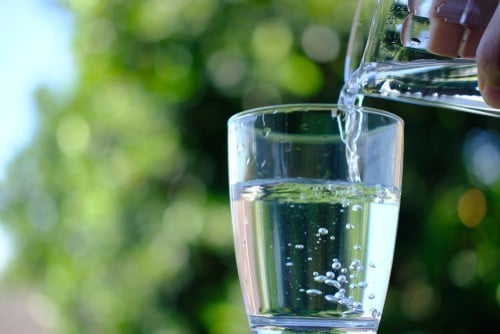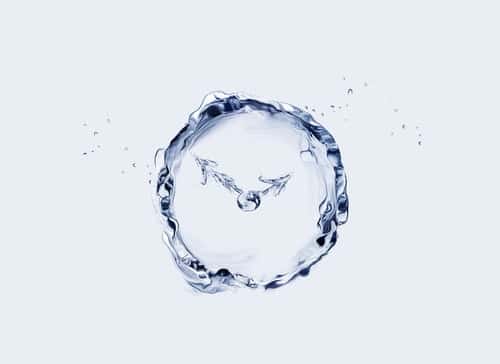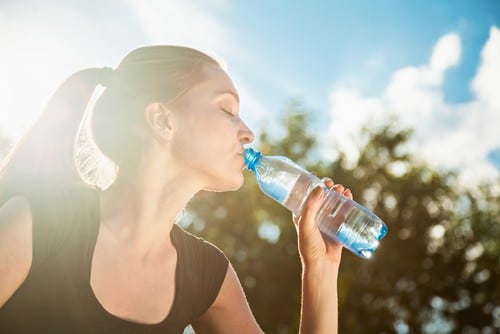‘Fasting is a fiery weapon.’ Mahatma Gandhi
Fasting has been used both as a religious and medical practice for thousands of years. Ancient Chinese, Greek, and Roman physicians suggested fasting for medicinal purposes. The great spiritual traditions recognize the merits of fasting. Today water diet (fasting) is recommended by physicians and therapists for physical, mental, and spiritual health.
As described in the Merriam Webster Dictionary, fasting is ‘to eat sparingly or abstain from some foods.’ That is, we do not eat some or all food and drink or both for a while. In that sense, we all fast some way or another during our lifetimes. For instance, fasting is recommended before surgical or other procedures or medical tests.
One of the early supporters of the water diet is the American writer Mark Twain. He wrote, “A little starvation can really do more for the average sick man than can the best medicines and the best doctors. I do not mean a restricted diet; I mean total abstention from food for one or two days.”
A water diet is a type of fasting in which you consume only water for a while. A water diet is a zero-calorie diet. Because during a water diet, your calorie intake is zero. Water fasting is a period when a person eats no food and drinks only water. A Water Diet plan may help you with weight loss, but is it safe, and do the effects last long-term?

Why Do People Do Water Fast?
People may undertake a water diet to lose weight, for spiritual or religious reasons, or to heal from particular health problems. Nowadays, water fast has become popular in natural health and wellness movements, often alongside meditation.
If you want to do a water diet, especially for medical reasons, you should take a recommendation from a health professional who is familiar with it. When you water fast under professional supervision following specific guidelines, it is also called therapeutic fasting.
The water diet is therapeutic fasting. Before you join a water diet program on a center, the health professional asks about your health history and make a physical examination. During water diet, patients are monitored daily, and if necessary, the health professional may terminate the fast. Compared to an unsupervised fast, a supervised fast has an increased probability of being successful, particularly emotionally and physically.
‘We live in disordered times, complicated, distracted, and demanding… Whether in prayer or meditation, in visualization, fasting, or song, we need to step out of our usual roles, out of the busy days on automatic pilot.’
Jack Kornfield, a Buddhist teacher, and psychotherapist

Benefits of Water Diet
Researches show that a water diet promotes autophagy. Autophagy is a process in which old parts of your cells are broken down, recycled and to prevent many medical conditions. It can lower the risk of many chronic diseases such as Type 2 diabetes, hypertension, cancer, heart disease etc.
Several animal studies suggest that autophagy may also help extend the life span. Autophagy also triggers the immune system to start producing new white blood cells. As we already know, white blood cells are a crucial component of your body’s immune system. So, water cleanse benefitshelp you reboot your immune system.
Researches also suggest that an extended and medically supervised water fast diet may lower blood pressure, which will help people with high blood pressure.
A water diet may also improve insulin and leptin sensitivity. Insulin and leptin are essential hormones that affect the body’s metabolism. Improved insulin sensitivity means that your body efficiently reduces its blood sugar levels. Meanwhile, being more leptin sensitive could help your body process hunger signals more efficiently, and in turn, lower your risk of obesity.

Weight Loss Benefits of the Water Diet
Water fasting can initiate profound weight loss transformations for various reasons when undertaken with proper knowledge and guidance.
During water fasting, the body taps into its stored energy reserves, particularly glycogen, in the liver and muscles. The body naturally shifts to burning fat as its primary energy source as glycogen is used.
Autophagy, which is a cellular self-cleansing process, can be triggered by water fasting. It breaks down damaged cells and reduces inflammation, facilitating cellular rejuvenation and enhancing metabolic efficiency, thus supporting weight loss efforts.
Along with reducing calorie intake with water fasting, the body’s fat-burning mechanisms get triggered as water fasting creates a calorie reduction. The body enters the state of ketosis during water fasting. It becomes highly adept at utilizing fat stores for energy, optimizing the weight loss process. Therefore, yes, weight loss is among the water fasting benefits.
Just like other fasting practices, water fasting requires a responsible approach. Adhering to recommended time frames and seeking professional guidance ensures a safe and effective fasting experience.
While water fasting can indeed give the start to a journey of significant weight loss, it is necessary to support it with a holistic health approach to maintain a healthy lifestyle in the long term.
Is Water Diet Safe?
When you want to undertake a water fast, you should check with a physician whether you are suitable for water fasting. Although there are long term and short term health benefits of water fasting, those who should seek advice from a medical professional before water diet are who:
- have an eating disorder
- are underweight
- are pregnant or breast-feeding
- have heart problems
- have Type 1 diabetes
- have uncontrolled migraines
- are undergoing a blood transfusion
- are taking specific medication; seek the advice of a doctor

Common Challenges and Solutions During Water Fasting
Water fasting, while offering various health benefits, can present certain challenges that individuals may encounter during their fasting journey. Being aware of these challenges and having effective solutions can contribute to a successful fasting experience.
- Hunger and Cravings: The initial stages of water fasting may trigger hunger pangs and cravings for food. Staying hydrated and keeping the mind occupied with activities or distractions can help manage these sensations. Engaging in light exercises or deep breathing techniques can also alleviate hunger.
- Fatigue and Weakness: Fasting can lead to feelings of fatigue and weakness as the body adjusts to the lack of energy from food. Getting adequate rest, practicing gentle exercises like yoga or walking, and ensuring sufficient electrolyte intake can combat these effects.
- Dehydration: Maintain proper hydration levels is essential when we don’t eat and fast. We should drink enough water and electrolyte-rich fluids throughout the day to prevent dehydration and support bodily functions.
- Nutrient Deficiencies: Extended water fasting may result in nutrient deficiencies. This side effect can be observed after water diet for a week. To address this, individuals can consider shortening the fasting duration, including nutrient-dense broths or juices during fasting periods, or consulting with a healthcare professional for guidance.
- Detox Symptoms: As the body detoxifies, some individuals may experience detox symptoms such as headaches, nausea, or skin breakouts. These are usually temporary and can be managed by increasing water intake and resting.
- Social Challenges: Participating in social events while fasting can be challenging. Open communication with friends and family about the fasting journey can help them understand the process and provide necessary support.
- Emotional Resilience: Fasting may evoke emotional responses such as frustration or impatience. Engaging in mindfulness practices, journaling, or seeking support from fasting communities can help build emotional resilience.
Combining the Water Diet with Exercise for Maximum Results
Combining the water diet with exercise can yield impressive results, enhancing the benefits of both practices and promoting overall well-being.
Accelerated Fat Burn: The water diet encourages the body to utilize stored fat as an energy source. By complementing it with regular exercise, the body’s fat-burning capacity can be further boosted. Exercise helps create a calorie deficit, expediting fat loss and promoting a leaner physique.
Increased Metabolic Rate: Physical activity stimulates the metabolism, leading to more efficient calorie burning even during rest. Combining exercise with the water diet can help sustain a heightened metabolic rate, supporting weight management efforts.
Preserving Lean Muscle Mass: During weight loss, there is a risk of losing both fat and muscle. However, exercise, particularly strength training, helps preserve lean muscle mass. This is vital for maintaining healthy body composition and preventing muscle loss during the water diet.
Enhanced Endurance and Stamina: Regular exercise enhances cardiovascular health, boosting endurance and stamina. This allows individuals to engage in more prolonged and intense workouts, amplifying their calorie-burning potential and supporting overall fitness.
Improved Mood and Mental Clarity: Exercise releases endorphins, alleviating stress and anxiety and improving mood. Combining exercise with the water diet can enhance mental clarity and focus, contributing to a positive mindset throughout the weight loss journey.
Sustainable Lifestyle: Incorporating exercise into the water diet promotes a holistic approach to well-being. Regular exercise can instil healthy habits, making the lifestyle more sustainable and aiding weight maintenance beyond the diet.
Consultation and Balance: It is essential to seek professional advice before combining the water diet with exercise, especially for those new to fasting or starting an exercise program. Striking a balance between the two practices is crucial to avoid overexertion and ensure proper nourishment.

When You are Water Fasting
Fasting can be mentally and physically challenging, so people must prepare themselves by:
- eating well before the fast, with foods that are high in energy
- reserving a time that will allow for rest
- avoiding fasting if feeling unwell or very tired
- avoiding demanding exercise
- considering building up to a fast slowly, for example by reducing the size of meals and following a vegan diet for at least a week
- If you have not done a water diet before, you should consider doing water fasting under medical supervision.
It is essential to drink enough water during the fast, and you should spread this out throughout the day. However, you should not drink more than usual during water diet since it can be harmful rather than useful.
You may feel tired and low on energy since fasting deprives the body of the fuel it needs. Especially if you are taking a long-duration fast, you may feel dizzy, weak, irritable, or nauseous. Then, you should seek medical advice. If necessary, health professional would check your vitals and will terminate the fast.
Considering all these factors of feeling dizzy, weak, irritable, and nauseous, the purpose and importance of supervision during fasting become more evident. Being supervised by a health professional, especially experienced in fasting, will increase the participant’s chances of having a safe and successful fasting experience. The health professional will make the necessary adjustments according to the individual needs of the participant.
Breaking the Water Diet
When ending your fasting diet, you should ease back into eating to avoid potential digestive problems. Depending on the number of days you fasted, you can introduce your body to food gradually. For example, at TheLifeCo, we strongly recommend two days of fast-breaking for each week of water diet.
During fasting, your digestive system gets complete rest. Breaking your fast means restarting the digestive process. Therefore, you should consider starting with liquids, like green juice smoothies or vegetable broth to prevent a drop in blood pressure.
You may have melons that are nutrient-dense and essential for maintaining proper nutrition after water fasting program. Taking it slow and secure is not the only kind to your body. But this also allows you the opportunity to integrate your new-found clarity on your relationship to food. Download our free guide to prepare for water diet and detox here.
Personal Experiences and Success Stories with the Water Diet
Krystle is telling her 41-day water fasting experience to heal her rheumatoid arthritis at The LifeCo Phuket. She got her mineral IV’s twice a week, got some healing symptoms along the way, and after 17 days, she felt great, started to move much more easily than before, broke the fast with melons, and continued with raw vegan intermittent fasting meals.
She says: “The effects of rheumatoid arthritis decreased after the water fasting program, first on the hands and feet, then on the whole body.”
Frequently asked questions about water fasting
How Long Should Water Fasting Last?
The length of water fasting depends on your dedication, needs and lifestyle. If you are willing to manage a chronic illness, it i better to do water fasting under medical supervision. At least 3-5 days is recommended for weight loss and anti-aging effects.
Breaking the Water Fast: Resuming Regular Eating
Can Anyone Practice Water Fasting?
What to Expect in the Early Days of Water Fasting
Does Water Fasting Prevent Aging?
Yes, water fasting supports cellular renewal and gives the body time to reverse the signs of aging.






